- Research
- Research Centers
- Journals
- Admission
- Introduction
- Programs
- Application
- Alumni & Giving
- Alumni Club
- Giving
A vibrant tapestry of cultures unraveled as Beijing Foreign Studies University (BFSU) embarked on a five-day study tour in Xinjiang Uygur autonomous region from April 26 to 30, aimed at enriching international students and Chinese faculty’s knowledge of the region’s diverse heritage.
The tour hosted 12 participants from an array of countries — Cameroon, Iran, Kazakhstan, South Korea, Kyrgyzstan, Malaysia, Nigeria, Poland, Russia, Sri Lanka, Sudan and Thailand — accompanied by eight faculty members from varied ethnic backgrounds such as Han, Manchu, Mongolian and Xibe.
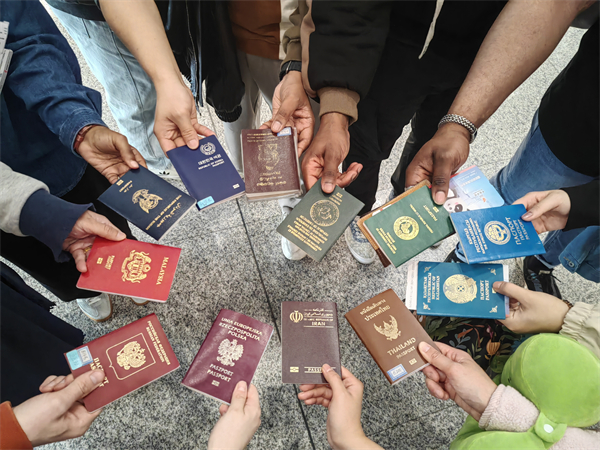
International students display their passports. [Photo by Zhai Zheng]
Participants embarked on a comprehensive journey through Xinjiang, engaging in activities designed to provide an immersive experience of the region’s historical, cultural and modern achievements. Visits to key cultural landmarks, such as the Xinjiang Museum and the Urumqi Museum, offered students and teachers a glimpse into the region’s extensive history from ancient times to the present day.
“The diversity and inclusiveness of Chinese culture, especially here in Xinjiang, are profound. Seeing the coexistence and development of various ethnic groups in China was truly enlightening,” said Thelikada Kankanamge Asela Prabath Kumara, a Sri Lankan doctoral student in the China Studies Program.
Their journey also included visits to several modern facilities, such as the Urumqi Urban Planning Exhibition Center and the Xinjiang Culture and Tourism Digital Expo Center, where participants used high-tech tools to explore the region’s natural landscapes and cultural heritage.
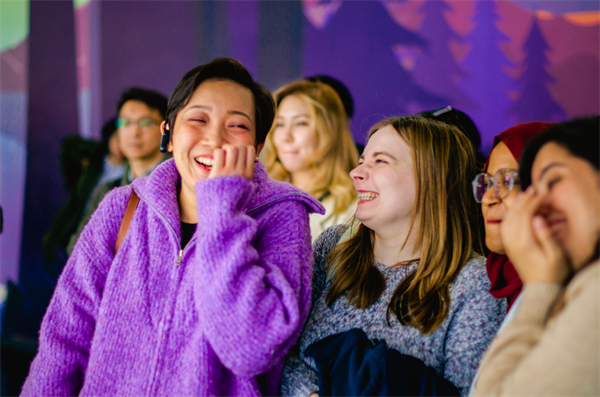
Students have fun at the Digital Expo Center. [Photo by Nik Norafiqah Binti Nik Ibrahim]
Beyond indoor exhibitions, the group explored urban green spaces, including Little Green Valley Park and Hongshan Park, where they witnessed firsthand the efforts towards urban greening and ecological protection.
A memorable highlight of the tour was the visit to the Xinjiang International Grand Bazaar, during which participants immersed themselves in the local culture by tasting such delicacies as freshly baked naan. The atmosphere buzzed with excitement as international students joined enthusiastic locals of diverse ethnic backgrounds in a lively Uygur-style square dance.

International students spontaneously dance with locals. [Photo by You Zheng]
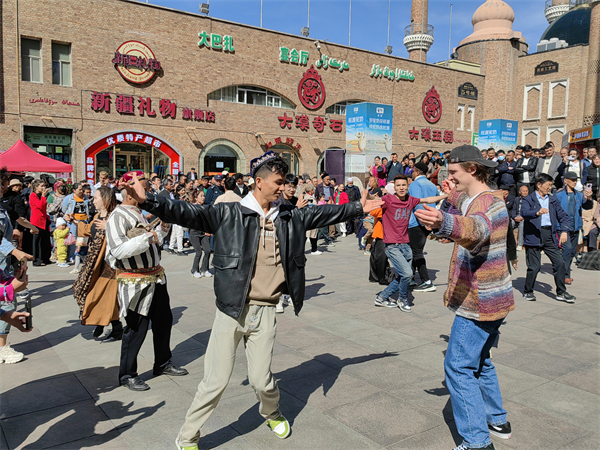
International students spontaneously dance with locals. [Photo by Zhai Zheng]
Educational discussions were also a cornerstone of the visit, with a lecture on the “History and Culture of Xinjiang” delivered by professor Meng Nan from Xinjiang University, alongside interactions with local students and educators that provided deeper insights into the region’s educational and cultural practices.
“This tour has been a deeply educational and culturally immersive experience that has enabled us to observe and comprehend cultural differences. Such understanding, supported by firsthand experiences, can enhance exchanges and mutual learning among civilizations,” said Yao Jinju, co-organizer and professor at BFSU.
“Such initiatives are essential in today’s world,” said Zhai Zheng, co-organizer and associate professor at BFSU. “They help break down barriers and build mutual understanding among people from different backgrounds. This is how we foster global citizens who are knowledgeable about and sensitive to the complexities of the world.”
The exchange concluded with cultural experiences at the Xinjiang Education Institute, where participants learned to draw pomegranates — a local favorite fruit and a symbol of ethnic unity — in the traditional Chinese style, and enjoyed ethnic dance and folk music. These activities, held under the theme “Sweet Xinjiang,” celebrated the region’s rich cultural heritage and showcased its diverse artistic traditions.
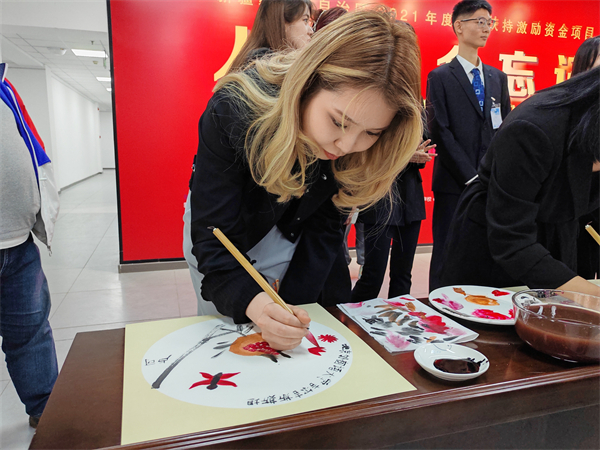
A student from Kyrgyzstan draws pomegranates. [Photo by Yuan Ziyang]
Informal gatherings and shared meals further enriched these experiences, allowing an exchange of stories and personal insights that deepened the participants’ understanding of cultural nuances and fostered lasting friendships.
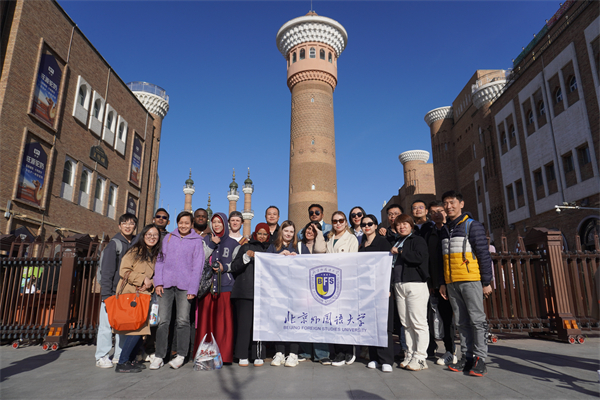
Group members pose for a photo together. [Photo by You Zheng]
The feedback from participants has been overwhelmingly positive, with many expressing a desire to return to Xinjiang. Through this immersive experience, they gained not only knowledge but also an appreciation for the cultural diversity that defines both Xinjiang and China, reinforcing the principles of unity and diversity crucial in today’s globalized world.